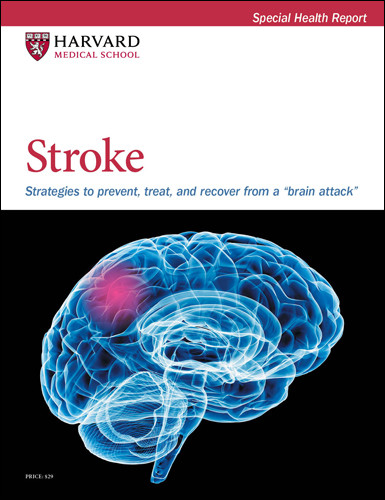Testosterone therapy may be safe for men at risk for heart attack and stroke
In the journals
- Reviewed by Howard E. LeWine, MD, Chief Medical Editor, Harvard Health Publishing; Editorial Advisory Board Member, Harvard Health Publishing

Does testosterone replacement therapy (TRT) raise men's risk for heart attacks or stroke? A new study suggests not, although with some caveats. Researchers enrolled 5,246 men ages 45 to 80 with testosterone levels of less than 300 nanograms per deciliter (ng/dL). (Normal levels range from 300 to 1,000 ng/dL.) More than 50% had existing cardiovascular disease, while the others were considered at increased risk because of such factors as diabetes, high blood pressure, smoking, and an imbalance of lipids (total cholesterol, low-density lipoprotein, high-density lipoprotein, and triglycerides).
For an average of 22 months, the men applied a gel to their skin daily. For half of the men, the gel was a placebo (inactive). For the others, it contained enough testosterone to maintain their hormone levels between 350 and 750 ng/dL. At the three-year follow-up, the researchers found no difference in the rate of heart attacks, strokes, or death from cardiovascular problems between the TRT and placebo groups. However, compared with the men using the placebo, those using TRT were more likely to have developed atrial fibrillation (an irregular heart rate that can increase the risk for stroke and heart failure) and pulmonary embolism (in which a blood clot travels to a lung artery and blocks blood flow).
The researchers pointed out that their findings do not apply to men who do not have a testosterone deficiency. Men considering TRT should discuss possible risks with their doctor, especially if they have any cardiovascular disease risk factors. The results were published in the July 13, 2023, issue of The New England Journal of Medicine.
Image: © ljubaphoto/Getty Images
About the Author

Matthew Solan, Executive Editor, Harvard Men's Health Watch
About the Reviewer

Howard E. LeWine, MD, Chief Medical Editor, Harvard Health Publishing; Editorial Advisory Board Member, Harvard Health Publishing
Disclaimer:
As a service to our readers, Harvard Health Publishing provides access to our library of archived content. Please note the date of last review or update on all articles.
No content on this site, regardless of date, should ever be used as a substitute for direct medical advice from your doctor or other qualified clinician.
















